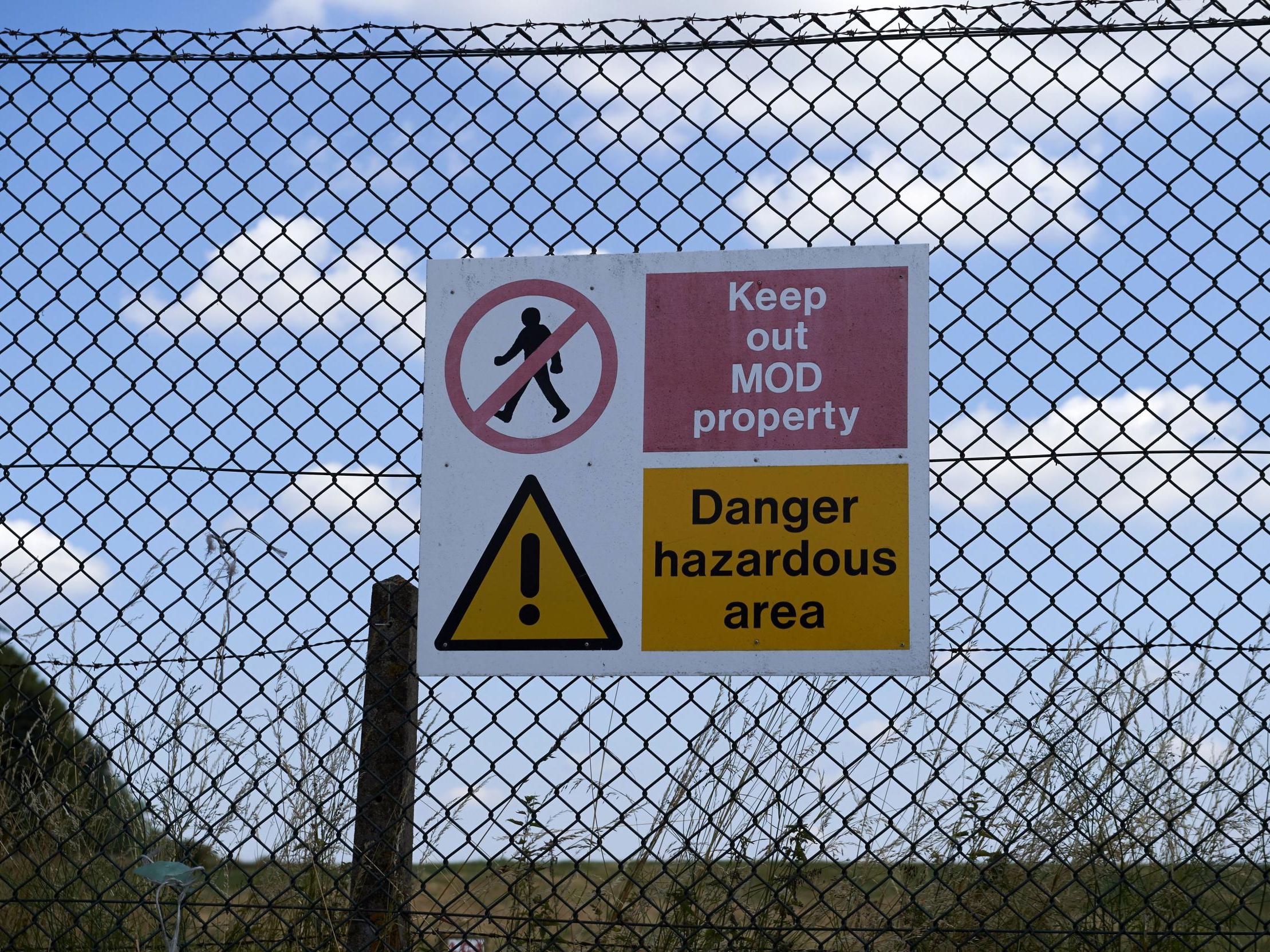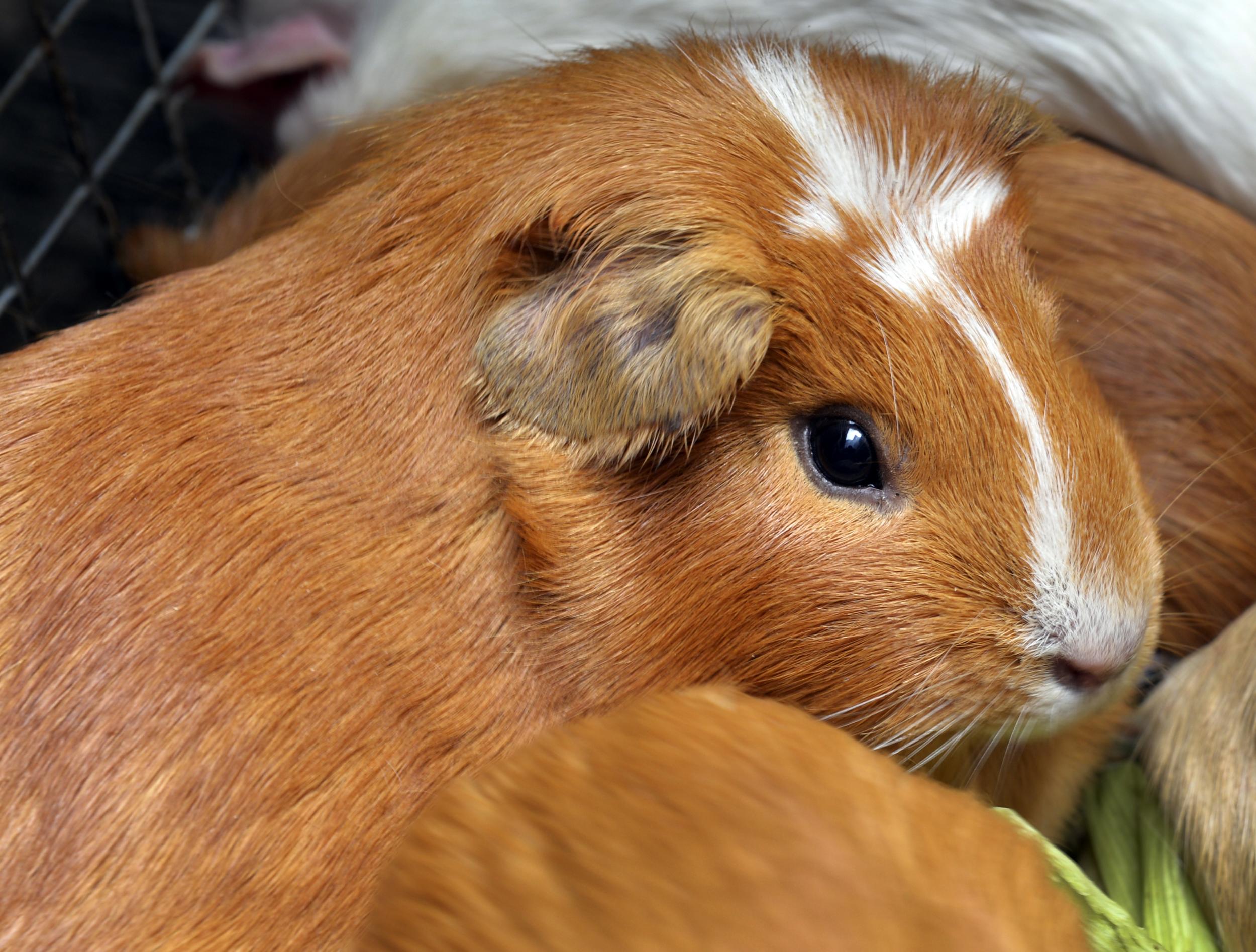Deadly Porton Down nerve agent tests left animals gasping, writhing and shaking before dying
Exclusive: Investigation finds animals given chemical weapons that cause blurred vision, drooling, nausea and vomiting

A deadly nerve agent was used to poison dozens of guinea pigs during tests that left them writhing, gasping and shaking at the Porton Down laboratory, an investigation has found.
Nearly 70 animals were given the chemicals that caused blurred vision, drooling, excessive sweating, eye pain, nausea and vomiting at low doses in humans. Higher doses can cause fits, paralysis, breathing failure and death.
Some were given a second chemical, an antidote known as a bioscavenger, to test its effectiveness.
In one test, all the guinea pigs that did not receive the trial cure died within 10 hours, while those that received it took up to two days to die, according to the research by the Animal Aid organisation.
It is the first time details of the 2017 experiments have been revealed.
Nearly 4,000 animals were experimented on that year at the government’s weapons-research laboratory.
Of those, 73 were monkeys, 3,400 were mice, 240 rats, 126 guinea pigs and 26 pigs.
Defence chiefs say protecting the UK and Armed Forces cannot be done without animals in research.
It’s already known that in 2017 pigs were wrapped in body armour material at Porton Down before being seriously injured or killed by explosives to test body armour for troops in Iraq and Afghanistan.
In the first experiment, 32 guinea pigs were tethered to a pump via tubes, before the chemical agent VX was applied to their backs in a dose higher than necessary to kill them, the researchers said.
They were given various injections, then scored for effects including “no meaningful voluntary movement”, “gasping”, “continuous tremor”, “production of tears” and “writhing”.
They were killed after the study, when they became too cold or had lost too much weight, the research found.
A second VX experiment was done on 37 guinea pigs.
One analysis said: “The conditions of animals treated with atropine alone [a chemical antidote] continued to deteriorate throughout the study until death” and they “died between two and six hours post-poisoning”.

VX is a highly toxic chemical compound developed for military use.
Animal Aid cited a 2007 academic paper that said guinea pigs “may not be a suitable animal model for the evaluation of nerve agent antidotes”.
Jessamy Korotoga, of Animal Aid said: “There is something especially dark and troubling about warfare experiments. To deliberately expose live animals to compounds, simulated blasts and biological pathogens known and developed to cause extreme suffering and death is morally unconscionable.
“A civilised society, in the 21st century, should not be involved in such macabre and terrible practices.”

But over the last 10 years it’s believed at least 100,000 animals have died at Porton Down in Wiltshire.
Animal-rights group Peta says defence chiefs should use technology such as human organs on chips, high-speed computer models and human-patient simulators that can breathe and bleed instead of live animals.
A Ministry of Defence spokesman said: “The Defence Science and Technology Laboratory is responsible for developing and creating indispensable technology and equipment to protect the UK and its armed forces. This could not, currently, be achieved without the use of animals in research.”
The ministry says less than 0.5 per cent of the total number of animals used in experimentation in the UK are used at Porton Down.
Join our commenting forum
Join thought-provoking conversations, follow other Independent readers and see their replies
Comments
Bookmark popover
Removed from bookmarks